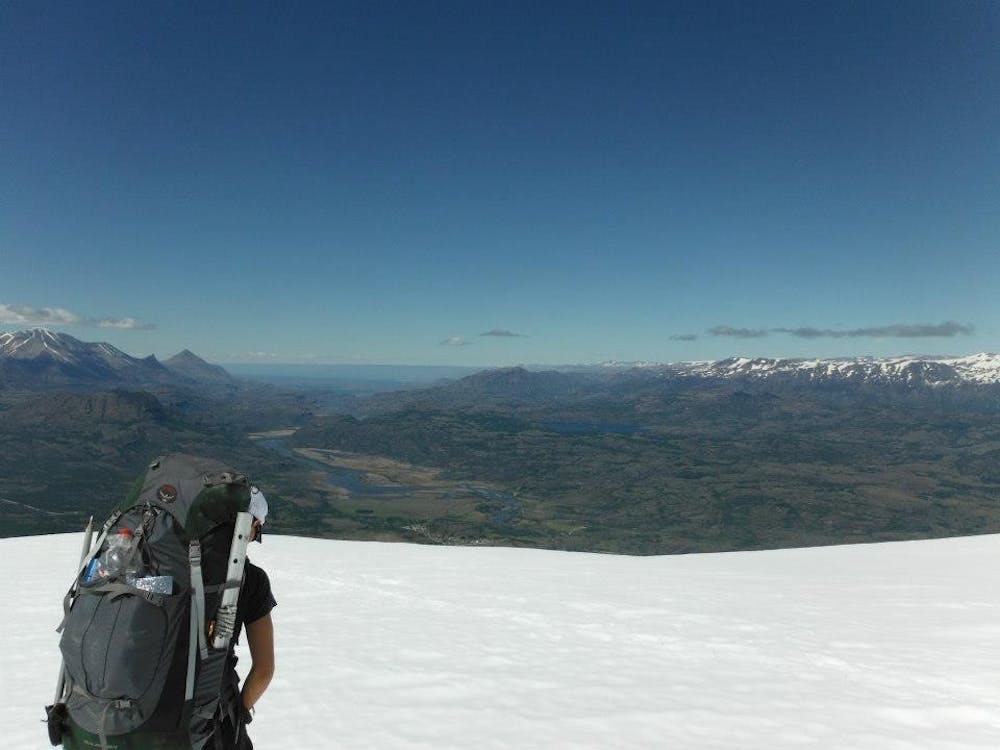The decision to deviate from the common path is hard, especially for teenagers just out of high school. But for four University students, the choice to take a gap year to travel abroad paid off immensely.
Each student found different reasons to travel abroad, whether their motivation was intrinsic or influenced by family and friends.
“I wanted to explore a little bit and do something for myself,” second-year College student Will Pavlis said. “The idea of organizing something myself and doing something that I really wanted to do appealed to me.”
All four students were accepted to U.Va. along with their graduating high school class but deferred their acceptances to make time for a year of travel.
“U.Va. made the whole process very easy, which somewhat affected my decision,” Pavlis said. “Some of the other schools I applied to weren’t very willing to work with me, but U.Va. got back to me very quickly.”
Pavlis spent his year participating in National Outdoor Leadership School in Patagonia, Argentina, completing the Camino de Santiago ancient pilgrimage route in Spain and working on a Worldwide Opportunities on Organic Farms site in Granada.
Second-year Nursing student Mary Heekin participated in Congress-Bundestag Youth Exchange in Germany and spent most of her time in Hamm. First-year College student Jen Sachs lived in Jerusalem with the KIVUNIM program. Second-year College student Katrina Johnson took part in Lattitude Global Volunteering in Geraldine, New Zealand. Each of these opportunities allowed students to travel extensively throughout or around their respective countries.
“The biggest thing for me was how friendly people were,” Johnson said. “It could have been very lonely going to a country where I didn’t know anyone, but the whole town brought me in.”
Gap years overseas helped these students understand that while lifestyles vary dramatically from one region to another, there are common threads across cultures.
“I think some of the coolest parts [were] realizing the stuff high schoolers talk about over there is basically the same as what we talk about, it’s just in a different language,” Heekin said. “They go through the same stuff we do, but it’s a whole different perspective.”
The similarities in day-to-day life became a theme throughout Sachs’ gap year as well, she said.
“They’re speaking different languages and using different currencies, but [I] realized people have the same feelings everywhere,” Sachs said. “Obviously they’re different cultures — Eastern Europe feels nothing like India — but I would have similar conversations everywhere I went.”
The students said they felt a greater sense of independence and ability to transition to college after a year abroad. They also developed strengths they had not anticipated acquiring.
“I know you just need to be your own best advocate,” Heekin said. “I spent so much time with my host parents that I have a different relationships with adults now too … I’m not hesitant to go talk to professors.”
Schoolwork takes on a new purpose after a year of experiential learning in a unique setting.
“Obviously I have more assignments and readings to do this year than I did last year, but [the] way I approach my work and my schedule is much different than it would have been without the gap year,” Sachs said. “I look at what kind of skills I can gain in my learning.”
Throughout the gap years, these students’ true priorities became clearer, which helped narrow their focus entering U.Va., they said.
“I definitely had different interests then than I do now, and it helped me figure out what I’m interested in,” Pavlis said. “I have a better idea of what I’m going to do in life.”
Johnson said a willingness to broaden one’s perspective is key to a rewarding time abroad.
“The most successful way to live abroad is to take everything as is and be open-minded,” Johnson said. “It’s really important to see how another culture lives and to get out of the bubble you grew up in, especially at a young age.”
These four students’ world travels equipped them with more cultural sensitivity, not to be lost amongst the routines of college life.
“[Y]ou can honestly live your life in so many ways, and the way we do it here isn’t the only [one], and it isn’t necessarily the best,” Heekin said.







